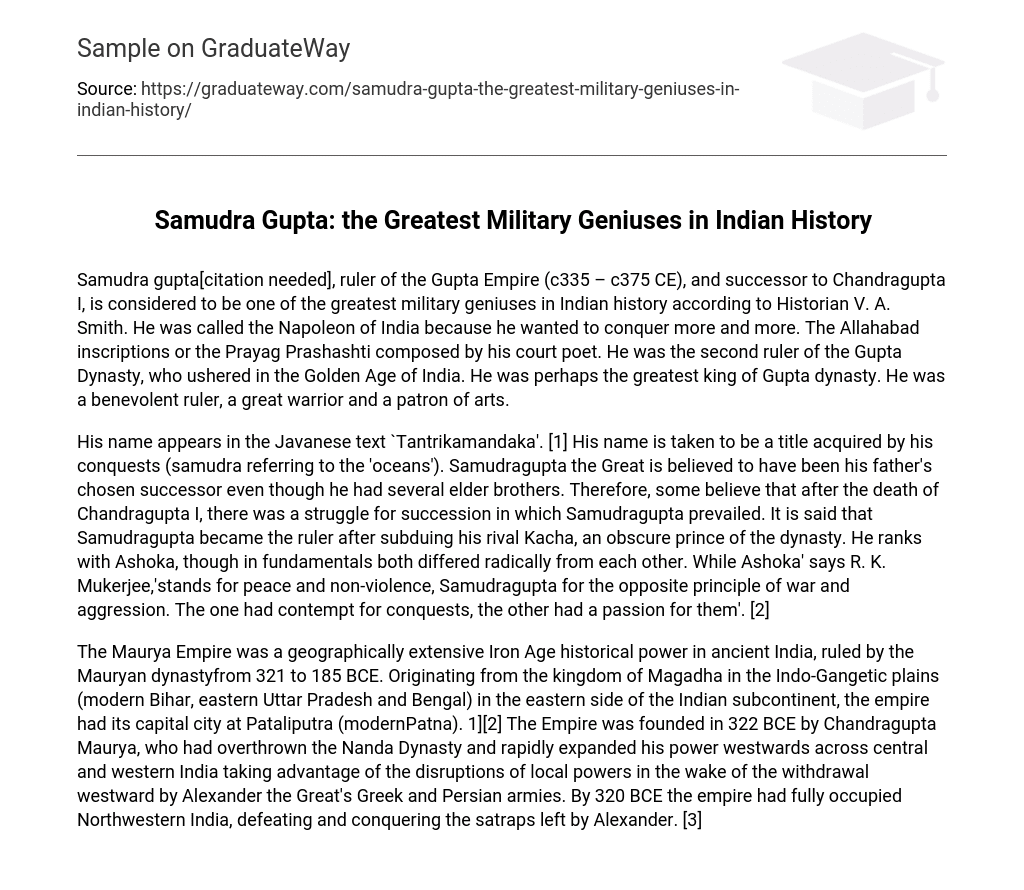Samudra gupta[citation needed], ruler of the Gupta Empire (c335 – c375 CE), and successor to Chandragupta I, is considered to be one of the greatest military geniuses in Indian history according to Historian V. A. Smith. He was called the Napoleon of India because he wanted to conquer more and more. The Allahabad inscriptions or the Prayag Prashashti composed by his court poet. He was the second ruler of the Gupta Dynasty, who ushered in the Golden Age of India. He was perhaps the greatest king of Gupta dynasty. He was a benevolent ruler, a great warrior and a patron of arts.
His name appears in the Javanese text `Tantrikamandaka’. [1] His name is taken to be a title acquired by his conquests (samudra referring to the ‘oceans’). Samudragupta the Great is believed to have been his father’s chosen successor even though he had several elder brothers. Therefore, some believe that after the death of Chandragupta I, there was a struggle for succession in which Samudragupta prevailed. It is said that Samudragupta became the ruler after subduing his rival Kacha, an obscure prince of the dynasty. He ranks with Ashoka, though in fundamentals both differed radically from each other. While Ashoka’ says R. K. Mukerjee,’stands for peace and non-violence, Samudragupta for the opposite principle of war and aggression. The one had contempt for conquests, the other had a passion for them’. [2]
The Maurya Empire was a geographically extensive Iron Age historical power in ancient India, ruled by the Mauryan dynastyfrom 321 to 185 BCE. Originating from the kingdom of Magadha in the Indo-Gangetic plains (modern Bihar, eastern Uttar Pradesh and Bengal) in the eastern side of the Indian subcontinent, the empire had its capital city at Pataliputra (modernPatna). 1][2] The Empire was founded in 322 BCE by Chandragupta Maurya, who had overthrown the Nanda Dynasty and rapidly expanded his power westwards across central and western India taking advantage of the disruptions of local powers in the wake of the withdrawal westward by Alexander the Great’s Greek and Persian armies. By 320 BCE the empire had fully occupied Northwestern India, defeating and conquering the satraps left by Alexander. [3]





